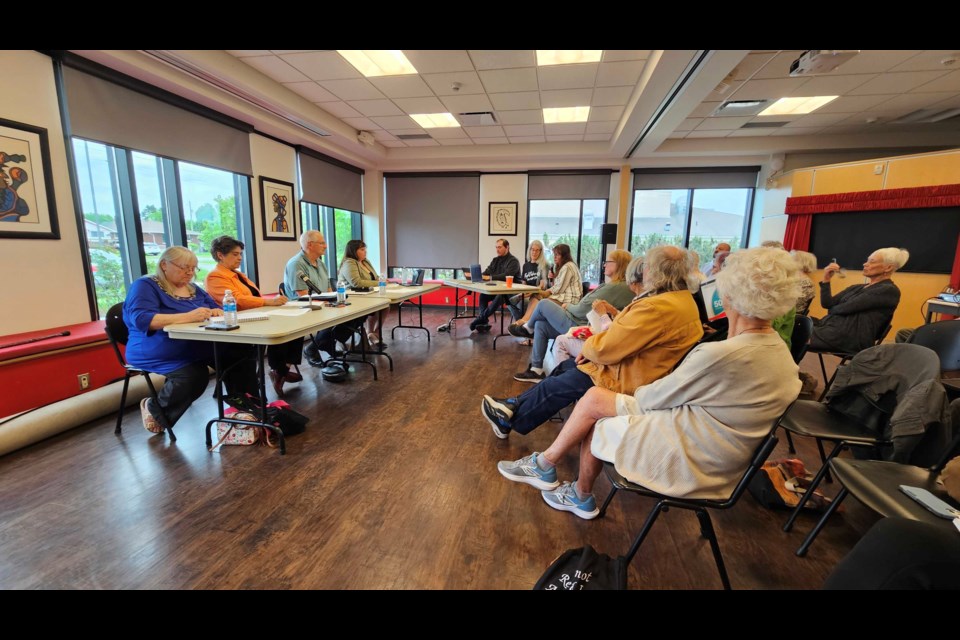THUNDER BAY — The Ontario Health Care Coalition has been travelling across Ontario to hear what communities have to say regarding public health care in the province.
Once finished, the feedback will be compiled into a report for the province.
Natalie Mehra, the coalition's executive director, was in Thunder Bay on Monday at the Mary JL Black Library. Mehra said it's important to speak to residents in Northern Ontario because each community has unique situations.
"The North is unique, as people in the North know, but of course policymakers don't really treat it that way often," said Mehra.
"I just think it's really critical in Northern Ontario. The distances are so big, but also, the cultures are different. I always feel that there's kind of a [type of] people that take care of each other in a way that is really impressive."
Mehra noted the coalition has the support of all three opposition parties.
"When you have all three opposition parties pushing for something, that puts a lot of pressure on the Ford government to finally actually do something.
"Right now, what we're seeing is all the effort and attention and money is going into privatizing health care, not to actually improving services that are dealing with a crisis.
"This is the worst staffing crisis we've ever seen out there across the whole system. As we heard today - from home care to long-term care, to hospital care, to primary care - we need urgent action. I feel like this is one way of sort of galvanizing pressure on the Ford government to actually have to respond."
Mehra spoke about emergency room closures in northern communities and how they are different from those in southern parts of the province.
"Emergency departments are completely overwhelmed up in the North here. If you have Rainy River closed, then you know people are going to Fort Francis, and that's an hour and a half in good weather.
"So the precariousness of the net of health, human resources, the doctors, the nurses, the health professionals is just very, very severe in the North. The risk to life and limb for people is very, very high up here. It's a similar story, just on a different scale in southern Ontario."
Multiple presenters attended the meeting, including two veteran nurses who work at the Thunder Bay Regional Health Sciences Centre who said the government isn't funding hospitals enough.
Cheryl McSweeney has been a registered nurse for over 30 years and she is also the vice-president of political action with Local 73. She spoke to the panel about her concerns in public health care.
"We see in our own community where the government is willing to fund agencies, a lot of our home care, if not most, is private agencies. A lot of our long-term care are private agencies, and they make a profit off of health care. That profit does not go to our local community in public health-care dollars."
During her presentation to the panel, McSweeney outlined that over 100,000 hours were worked overtime at the regional hospital in the 2021-2022 fiscal year.
McSweeney said while having equitable pay is important and has been the focus for a while for health-care workers, she believes it's the working conditions that are driving people away.
"There isn't room to make huge mistakes or any mistakes really," said McSweeney.
"We are now asking these new grads to work in these conditions that a lot of us who are senior [nurses] are having a hard time working in now.
"It's not just nursing - it's health-care workers, each and every one of us . . . We all try our best. We go to work every day just to do our job, care for our patients, and give the best care that we possibly can. It means public funding to do our jobs correctly."
The coalition will accept public submissions until June 20. Then, the information will be compiled into a report, which is expected to be delivered to the province in September.
Katie Nicholls is a Local Journalism Initiative Reporter with Newswatch
